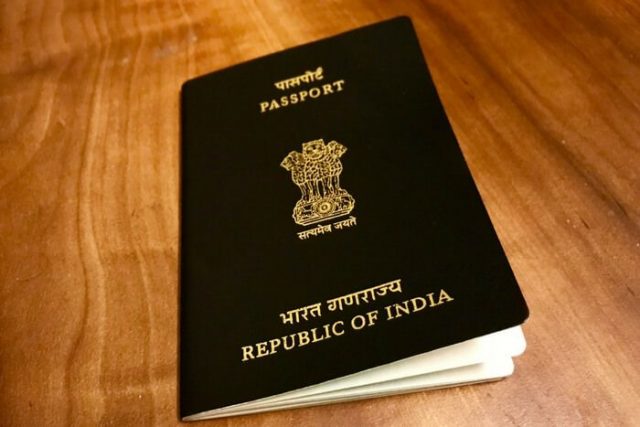Disclaimer: Originally published in May 2018. It is being republished since it still remains an interesting topic till today.
Let’s face it- an Indian passport may not exactly be the world’s most coveted document, but it’s quite an important one nonetheless.
Like the Aadhar card, PAN card, driving license, ration card, voter’s ID and so on, the passport is another important piece of paper required to establish your identity in this country.
From entering an airport to getting a SIM card to getting an education, nothing can be done without establishing the fact that you are a legitimate, upright, loyal, genuine, lotus-brandishing, saffron-wearing, gomutra-drinking I.N.D.I.A.N.
So, what is the process required to get the most impressive-sounding of these documents- the PASSPORT?
Step 1: Announcing Your Intentions, Like A Victorian Suitor
There are two ways to let the passport office officials know that you’re coming for them: you could either fill up the form available on the official website of the passport office, announcing your intentions and seeking a date to pay a call, or get an agent to be the go-between, and do your dirty work for you. I personally went for the latter.
Step 2: Paying A Social Call To An Esteemed Passport Office Near You
Once you have been blessed with a date and time to visit the passport office (often harder to get than an auspicious date and time to get married), rejoice, and then visit said passport office with all the documents that validate your existence so far, from birth certificate to educational qualifications to job (if any).
For example, in addition to the aforementioned birth certificate, you would need to carry your Aadhar card, tenth and twelfth standard passing certificates, college certificate, voter’s ID, driving license, and so on. Apparently the more you’ve lived, the more you have to prove it with paperwork.
People are usually called for the proceedings in batches, so be prepared for a bit of a wait. You might want to use the loo at home first- you do NOT want to visit the ladies’ room in a government office.
Step 3: The Virtual Invasion Of Your Privacy
You, along with several other people, will be taken to a room full of bored employees sitting in front of computers.
There, they will proceed to flip through all the paperwork you’ve brought with you, do a biometric scan of your eyes, take your picture, fingerprints, and signature, ask you personal questions- carefully keeping the documents facing away from you in case you’re an imposter who doesn’t know the right answer- and then let you go.
You will also have to pay a certain fee to have your privacy invaded, thus, just like how you’ll have to pay the agent for getting you an appointment to have your life thoroughly prodded so you can get a document that allows you to cross Indian borders.
Read More: How Strong Is The Indian Passport In Reality And Not According To PM Modi?
Step 4: The House Visit
Now’s the fun part- you’ll have to give the passport office the name, address, and phone number of people who know you well, and can establish on being questioned by the police (yes, you read that right) that yes, you are indeed So-and-So who lives at God-Knows-Where and that you don’t have a criminal record.
The police will also drop by at your place sometime in person, just to verify the above for themselves.
Step 5: End Of Labour, Time For Delivery
Finally, after your information has been verified and document printed, you will be allowed to collect this esteemed document that is a very valuable piece of identification for young adults, as it contains only YOUR name and contact details, and not those of your parents.
If you are unable to collect it yourself, you can write a letter authorising a family member to do so on your behalf. They will have to take the letter, documents proving THEIR identity and proof of their relationship with you to the passport office to collect your passport.
If you happen to lose your passport, you will need to pay a visit to the same passport office that issued the first one along with a copy of the email or letter you received confirming that a passport was issued to you. You would also have to carry photo and address proof.
A certain fine will be levied for losing the passport, following which the process of getting a new one will commence. You will also be questioned in detail about how you lost the passport, as it is very easy to commit forgery and identity theft these days, and the passport is a vital proof of identity and citizenship.
For all these reasons, it is better to keep this little document extremely safe.
Image Credits: Google Images
More Recommendations:
Is The Govt. Trying To Meddle With The Allocation Of Cadres To Civil Servants?








































